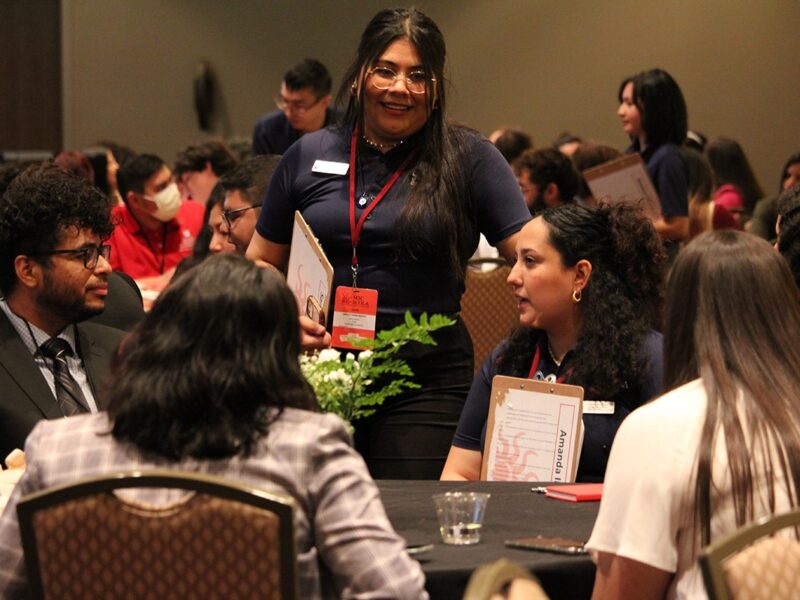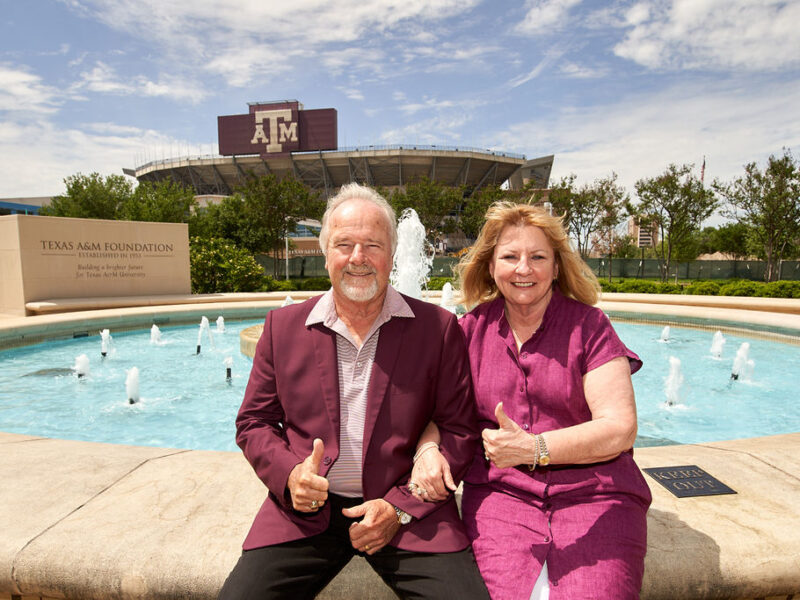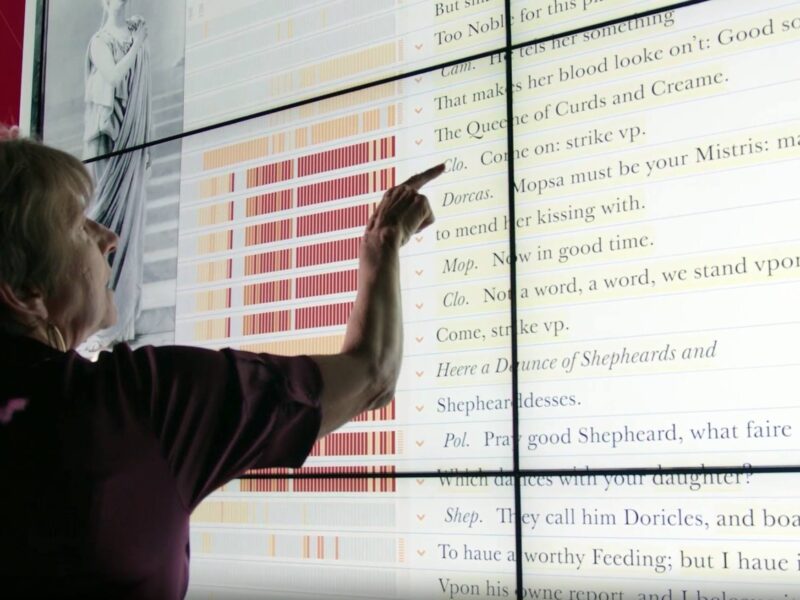Revered Religion And Philosophy Professor Settles At A&M After World Travels
Texas A&M religion and philosophy professor Richard Stadelmann’s witty jokes and sheer intelligence are something his students said everyone should experience.
“Like Confucius said, ‘I’ve done so many things but mastered none,’” Stadelmann said.
Stadelmann grew up in a Quaker community in Richmond, Ind. He attended college at Urlum; a small Quaker college.
“I have a high opinion for Quakers, except I am not and never will be a pacifist.” Stadelmann said.
Stadelmann was a speech and philosophy major and became one of the top-ranked debaters in the country. He received an academic scholarship from Yale and decided to attend seminary, where he majored in theosophy.
Stadelmann decided to enlist in the Navy and became a Navy Chaplain. During his term between the Korean and Vietnam wars, he was stationed in Newport, R.I.
“Though I never went overseas, I wanted to; just never had the chance.” Stadelmann said, “My job was to understand all groups of religions, which I think I do quite well.”
Stadelmann has a strong history of military service in his family. His sister was among one of the first women enlisted in World War II. His father was in the Navy during World War I, and one of Stadelmann’s sons is a green beret in the Army.
Along with an impressive service record, Stadelmann has an interesting family history. His grandfather fled from Germany and Hitler to come overseas and work for Harvard at the X-ray lab.
“All of my mom’s male relatives except her father were killed by Hitler,” he said.
Stadelmann is the proud father of eight children. His family scattered coast to coast. One of his daughters, Olga Gehredt, is a graduate student in philosophy at A&M. His wife is a professor at Blinn Junior College in Brenham.
While in the service, Stadelmann noticed that A&M has produced more chaplains than any other schools, so he immersed himself in Aggie traditions.
“I have been associated with a number of schools, and the two I respect the most are A&M and Yale,” Stadelmann said. “They have an unexplainable alumni loyalty and pride.”
Stadelmann has taught at LSU-New Orleans. “I once made the paper hanging from a light pole during Mardi Gras,” he said.
He taught at Tulane University, but came to A&M in 1967 to teach after he was asked by General Rudder.
“I have a very high opinion of people that came from A&M,” he said.
Stadelmann started teaching religion and philosophy classes at A&M. “I was the first teacher of all logic courses, as well as religion,” Stadelmann said.
“The Battalion actually ran a article on me 20 or so years ago with that claim,” Stadelmann said. “A&M has changed a great deal: it once had small classes and was friendly, now it’s so big, that I can barely remember a few of the students’ names.”
Stadelmann has taught more than nine course areas, from the concepts of love to graduate level classes on Hindu philosophy. He is teaching Eastern religion studies this semester and coaching the first A&M debate team.
He has taught so many courses and been involved in so many groups that he has an award named after him.
The classes Stadelmann teaches are just filled with vigorous information.
“I love to read,” he said. “My dad use to get upset with me, because I read so much. I would hide under the covers at night reading with a flashlight.”
As far as religion goes, Stadelmann teaches from the perspective of actual relationships with the religions. “I’ve attended worship of every religion.”
Stadelmann is also an ordained minister in the Church of Christ.
Stadelmann pointed out the critical need for students to take religion courses.
“You need to know the different types of religions if you’re going to live in the world today,” Stadleman said.
He said A&M has neglected putting emphasis on some of these religious areas, but expresses the importance of every religion, just as the argument of church and state.
“Many people believe that basic moral characteristics can be taught, but it’s too much, but it’s needed to maintain the standard of morality and character of the country,” Stadelmann said.
Stadelmann became interested in religion at an early age by using philosophy to “try and find ultimate answers, like a personal search.” He later found out that every religion has an answer of some type to these questions.
“If you only study philosophic answers then you are neglecting religions and other beliefs. Philosophy without religious dimensions is a limited human experience,” Stadelmann said.
Stadelmann’s ideas, theories and intellect have been used by many great leaders. He has had the pleasure of being a delegate to four Republican conventions, talking with the Bush administration, and serving as the parliamentarian at A&M for faculty senate.
At 76, Stadelmann has experienced many things, both great and tragic. “I’ve been through two hurricanes and one earthquake.” Stadleman said.
One of his hobbies is to camp throughout the country and visit its historical monuments.
He has fought pancreatic cancer since July 2007.
“I have had 26 chemo treatments, 12 radiation, and a10-hour surgery to remove my cancer,” he said. “I’ll be 77 years old next December. It’s been… a busy life.”
His cancer was in remission, but returned last month. “Everyone is dying, just some of us know more precisely than others [when],” Stadelmann said.
However, since he’s beaten the odds once, he maintains the will and strength to do it again.
With the help from his family and wife, he seems not to have a care in the world. “I still wrestle with God, may it be intellectual or physical pain in the pancreas.”
Stadelmann said, “I have questions of course, its human nature.”
Plato’s theories and prayers help him through his challenges. “Plato said, ‘following the right path will come to know the good,’” he said. “I hope I did enough good.”
This article by Michael Allen originally appeared in The Battalion.





